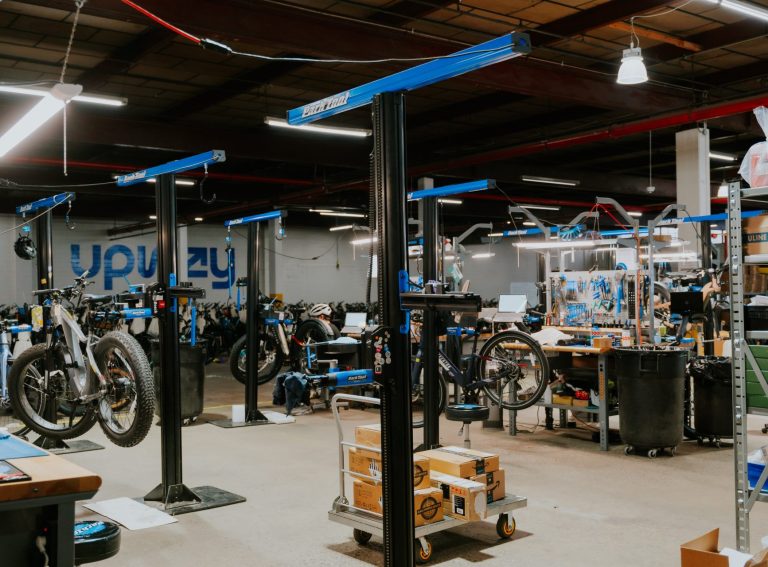The word innovation gets thrown around a lot in working environments. But what does it actually mean in a last mile logistics sense? And what are some practical use cases other firms can learn from?
For Ercilio De Oliveira, Chief Innovation Officer at sustainable logistics provider Delivery Mates, “innovation is looking at unconventional ways of achieving something that has always been done the same way in the past.
“But it also means testing and trying to solve the problem in a way that doesn’t cost you the world. We look at it from that angle.”
A responsible electric transition
Ercilio believes brands in the micromobility industry can become so fixated on a sustainability pledge that it comes at the expense of making responsible decisions.
Ten years of experience in his role at the sustainable logistics provider has taught him that the goal of going electric does not justify a company for moving too quickly. Instead, a company should only move at the speed it can afford to go or it risks not meeting its long-term goals.
“One of the things that happens in this industry is that individuals push for changes at all costs,” Ercilio says. “If you change things faster than your organisation can afford then that often means creating a commercial risk for the business.
“The biggest lesson to me is that with any change that you promote, you must do it responsibly and make sure that you’re looking after every stakeholder. You see a lot of companies that have gone 100% electric also go bankrupt because they care more about their pledge than making decisions responsibly.”
Carbon footprint summaries
Rather than rushing into a fully electric fleet, Delivery Mates hopes to organically achieve its 100% electric goal by the end of 2025 with an innovative feedback-driven approach.
With 100,000 UK deliveries per day, and 147,000 including Italy and Spain, Delivery Mates currently sees 41% of its deliveries carried out electrically via e-cargo bikes, while its new operations in Holland and France are already 100% electric.
Hoping to ease its way into a fully electric delivery system, the provider has begun supplying its clients with a carbon footprint summary each month based on whether they selected Delivery Mates’ diesel or electric vehicles.
“We were 100% diesel two years ago. We’re transitioning everything to electric, but we don’t make the client solely utilise our electric fleet. Instead, we deliver a carbon impact report to them each month which tells them where they could improve their footprint or how much they’ve saved. Then, the improvements come naturally.”
For Ercilio, a company should not short-sightedly strive for sustainability if it comes at the expense of its stability and standing.
“If you’re serving a client with a fully electric operation and then go bankrupt, they’re not going to break their promise to their client just because they don’t have the option to not deliver with diesel.
“When transitioning to electric, sometimes you need to go at the speed that things allow you to because, as much as you care for the environment, you should also care for all the stakeholders involved.”
Lobbying government
Other areas of innovation can go far more unnoticed.
One such example is lobbying governments, which Delivery Mates has been doing in the background since August last year.
In a bid to address crime in the industry, Delivery Mates is pressuring the government to ensure that police attend the scene whenever there’s a crime related to a cargo bike.
It is not unheard of that cargo bike riders can be the target of crime whilst on the job. Thieves can steal goods from the rider, assault them with knives, and even set fire to the bikes.
“It’s a major security concern,” Ercilio says. “Our policy is that nothing is worth a life so don’t try and defend the goods if that could jeopardise your safety.”
Ercilio and his team are working towards ensuring that concern for safety is not a reason which may deter someone from becoming a cargo bike rider.
In doing so, Delivery Mates has been engaging in direct discussions with the relevant institutions such as the Metropolitan Police and holding monthly meetings with Transport for London. The firm has also worked with local councils such as Westminster Council and Hammersmith & Fulham.
“Safety is an extremely important social responsibility that companies like us carry on our shoulders, and we must do something about it.”
Driving women uptake
The issue of safety is exacerbated for female riders. In surveys conducted by Delivery Mates, female riders have said that they feel unsafe while doing deliveries, particularly in the winter when the days get darker and shorter earlier.
Currently in the UK, although women make up 49% of the workforce, in the UK cycling industry just 8% of workshop-based roles and 19% of customer-facing roles are occupied by women.
While it should be nothing but the norm to have a 50/50 gender workforce split, safety concerns mean that companies in the micromobility industry must achieve this through innovative means. So this is a core area of focus for Delivery Mates.
By the end of 2024, the provider wants women to make up 25% of its workforce, up from 7.5% currently.
To reach this the team are actively promoting job opportunities to a female audience. They are also hosting sessions to train their current female riders on how to defend themselves.
“We’re not teaching anyone karate, but women need to be alert to their surroundings and that in any event their life always comes first.
“Excluding women from logistics is excluding 50% of society. We are taking a proactive approach with real goals in mind to promote the insertion of women into logistics and ensure that they are here to stay.”
Microhubs
If Delivery Mates is to expand its network across the UK it needs to put footprints down where it can park the vehicles.
The delivery firm has therefore built 12 microhubs in London, with plans for 18 more covering Scotland and Wales next year.
“Each vehicle in a microhub lets us remove one van off the road for every bike we put in it. On average, 15 cargo bikes operate in one of our microhubs. So that’s 18 microhubs each taking 15 diesel vans off the road.”
Extending its innovative feedback-driven approach are Delivery Mates’s microhub reports it sends to private and public stakeholders to keep them informed.
In these reports are measures including noise movements around the microhub, the number of vehicles taken off the road, and the reduction of carbon footprint associated with each microhub location.
“We’re taking feedback from our different stakeholders. Firstly, the clients. Secondly, the public sector and thirdly, the drivers and the operators within the hub itself. If we’re to beat our sustainability targets, we need innovation across every single aspect of the business.”





